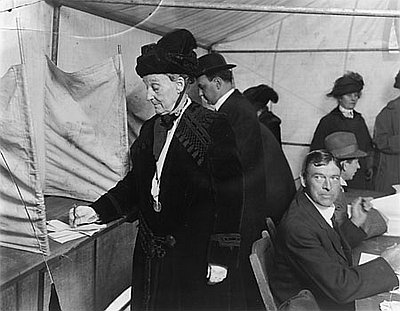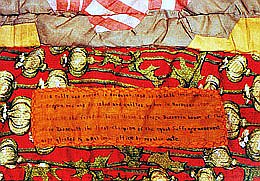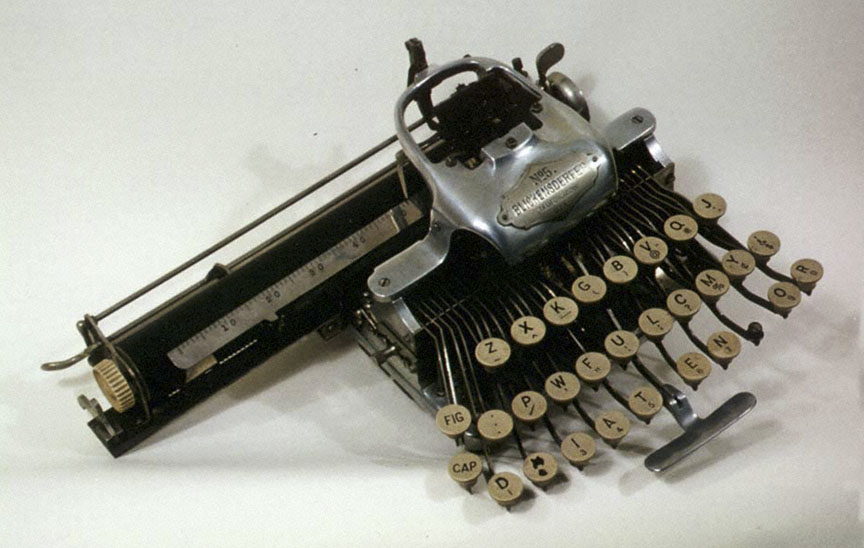- Catalog No. —
- OHS Mus 3570
- Date —
- c. 1893
- Era —
- 1881-1920 (Industrialization and Progressive Reform)
- Themes —
- Arts, Government, Law, and Politics, Women
- Credits —
- Oregon Historical Society
- Regions —
- Portland Metropolitan
- Author —
- Blickensderfer Typewriter Company, Stamford Connecticut
Typewriter Belonging to Abigail Scott Duniway
This portable Blickensderfer typewriter belonged to Abigail Scott Duniway, who doggedly worked for women’s suffrage beginning in the 1870s. In 1912, voters finally passed an amendment to Oregon’s constitution giving women the right to vote. Duniway’s son, Clyde, gave the typewriter to the Oregon Historical Society in 1938.
In 1852, at the age of 17, Duniway traveled overland to Oregon Territory with her parents and siblings. She kept a journal of the trek, documenting the deaths of her mother and youngest brother on the Oregon Trail. Duniway, who married and had six children, wrote poetry and novels. Between 1871 and 1887, she published the New Northwest, a weekly feminist newspaper. She argued for equitable wages for women and contended that voting was a fundamental right being denied to women. To make suffrage less controversial, Duniway distanced her movement from prohibitionists and other groups that argued women voters would reform and purify society. One of the state’s most powerful opponents to suffrage was Duniway’s brother, Harvey W. Scott, editor of the Oregonian.
Duniway and other activists put a proposed amendment onto state-wide ballots five times, in 1884, 1900, 1906, 1908, and 1912. After the amendment passed in 1912, Duniway was among the first women in Oregon to register to vote statewide. She died in 1915, five years before Congress ratfiied a constitutional amendment giving women the right to vote nationwide.
Further Reading:
Ward, Jean M. and Elaine A. Maveety, eds., Yours for Liberty: Selections from Abigail Scott Duniway’s Suffrage Newspaper. Corvallis, Oreg., 2000.
Shein, Debra. “Not Just the Vote: Abigail Scott Duniway’s Serialized Novels and the Struggle for Women’s Rights.” Oregon Historical Quarterly 101,2000: 302-327.
Written by Kathy Tucker, © Oregon Historical Society, 2002.
Related Historical Records
-
Abigail Scott Duniway votes
Abigail Scott Duniway, sister of Daily Oregonian editor Harvey Scott, was a novelist, newspaper publisher, teacher, pioneer, milliner, and suffragist. An overland pioneer of 1852, Duniway wrote a novel, one of …

-
Abigail Scott Duniway's Quilt
Written by Michael N. McGregor The colors clash. The fabrics jar. The garish designs are dizzying hexagons of mismatched stripes and solids, all placed awkwardly inside a hem of …

